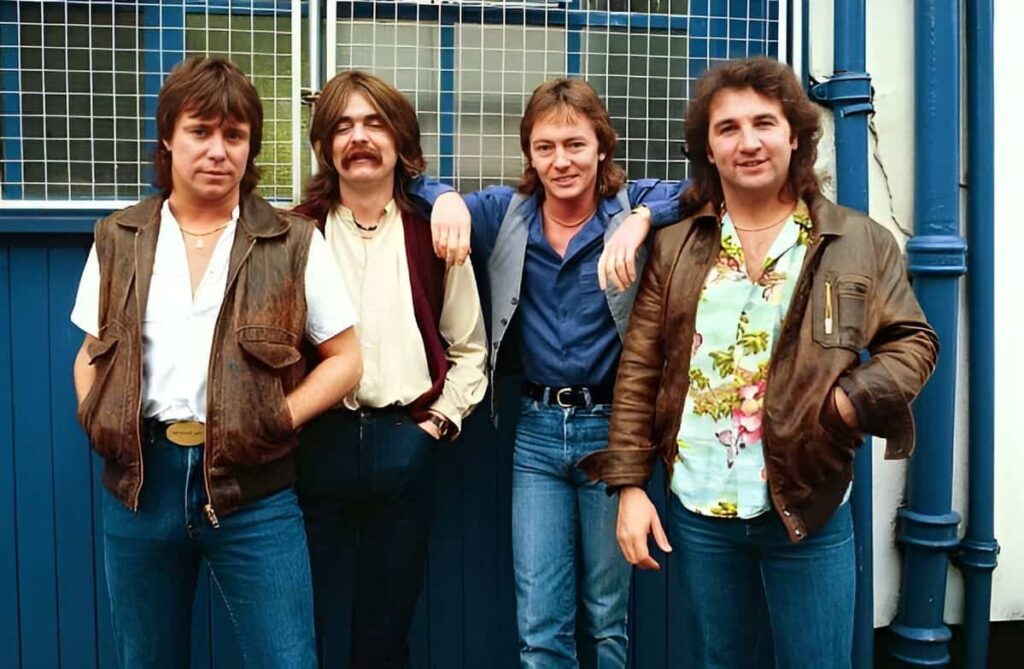
“Oh Carol”: A Bittersweet Melody of Lingering Love and Fading Dreams
Ah, Smokie. Just the name conjures up images of simpler times, of long car rides with the radio on, windows down, and the scent of summer in the air. For many of us who came of age in the 70s, their distinctive blend of pop-rock with those instantly recognizable harmonies was the soundtrack to our lives, marking moments both grand and mundane. And among their impressive repertoire, few songs strike quite the same chord of reflective melancholy as “Oh Carol.” While not one of their most globally dominant chart-toppers like “Living Next Door to Alice” or “Lay Back in the Arms of Someone,” “Oh Carol” still holds a special place in the hearts of their devoted fans. Released in 1978, the song, part of their album “The Montreux Album,” didn’t replicate the stratospheric success of some of their other singles on the Billboard Hot 100 in the United States, often being more of a beloved album track or a regional hit. However, in their native UK and across much of Europe, particularly in Germany and Scandinavia where Smokie enjoyed immense popularity, it performed respectably, often charting within the Top 40 or even Top 20 in various countries. Its enduring appeal, however, lies not in its peak chart position, but in its ability to tap into universal emotions.
The story behind “Oh Carol” is steeped in the very human experience of looking back, a theme that resonates deeply as the years accumulate. Written by the band’s prolific songwriting duo, Nicky Chinn and Mike Chapman, who were responsible for so many of Smokie’s hits, the song perfectly encapsulates a sense of wistful longing. While not explicitly tied to a single, dramatic event, it’s clear that the lyrics flow from a wellspring of personal experience – perhaps a composite of past loves, missed opportunities, and the inexorable march of time. The beauty of Chinn and Chapman’s songwriting was their knack for crafting narratives that felt both specific and universally relatable. Here, they paint a picture of a protagonist grappling with the specter of a past relationship, personified by the enigmatic “Carol.”
At its core, “Oh Carol” is a poignant meditation on a love that has faded but not entirely extinguished from memory. It’s about the echoes of a former romance that still linger, gently tugging at the heartstrings years later. The protagonist isn’t consumed by bitterness or regret, but rather by a tender nostalgia, wondering about Carol’s current life, her happiness, and if she, too, occasionally casts her mind back to what once was. It’s a testament to the fact that some connections, even when broken, leave an indelible mark, becoming part of the fabric of who we are. The lyrics evoke a sense of quiet introspection, a mature reflection on the passage of time and the way it reshapes our perceptions of love and loss. The melody itself, with its gentle, almost melancholic guitar lines and Chris Norman’s distinctive, slightly raspy vocals, perfectly complements this reflective mood. There’s a subtle ache in his delivery, a hint of vulnerability that makes the listener lean in and truly feel the weight of his contemplation.
For those of us who have lived a little, who have loved and lost and continued on, “Oh Carol” becomes more than just a song; it becomes a mirror. It reminds us of our own “Carols” – those individuals who, for a time, were everything, and who now exist as cherished memories, sometimes resurfacing unexpectedly, bringing with them a mix of sweetness and sorrow. It’s a reminder that life is a tapestry woven with threads of joy and pain, connection and separation, and that even the threads of what once was continue to hold meaning. The song doesn’t offer grand pronouncements or dramatic resolutions; instead, it offers a gentle understanding, a shared acknowledgment of the human condition. And perhaps that’s why, even all these decades later, when the opening notes of “Oh Carol” drift through the air, we find ourselves transported back, if only for a few moments, to a time when life felt both simpler and infinitely more complex, and when the echoes of past loves still resonated with a quiet, persistent beauty. It’s a timeless piece, a humble yet profound testament to the enduring power of memory and the quiet ache of a love that, though gone, is never truly forgotten.